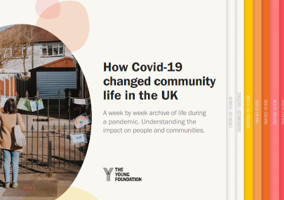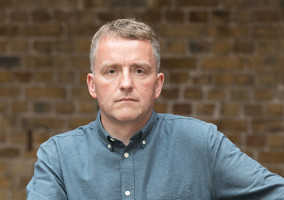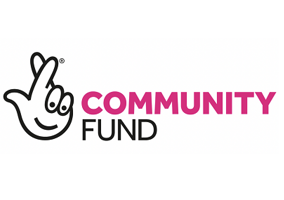Charities have failed to address the structural inequalities which worsened the impact of Covid-19 on those they exist to help, the Joseph Rowntree Foundation's director said yesterday.
Helen Barnard, acting director of the Joseph Rowntree Foundation, was speaking at NPC’s annual summer reception, which was being held digitally. She urged charities to improve how they communicate with the public, involve beneficiaries and focus on a smaller range of impactful things.
She said that “we have been guilty of a failure”, both as a sector and as a society, because the people who have been most affected by the pandemic were those who were already struggling.
She said the pandemic had demonstrated the willingness of people to pull together, but added: “How can we have seen such strong values, but have the sector that is based on those values in a sense fail so much on this.”
What is holding the sector back
Barnard said she thought three things had held the sector back: its communication with the public, a failure to involve users in developing services, and being spread too thinly.
“We work on really tough issues across society: poverty, exclusion, racism, addiction, homelessness. But too often I think we don’t properly engage the public in our endeavours,” she said.
She said part of the problem was the language charities use, and added: “We don’t really work to understand where do the public stand on whatever it is that we’re working on. And how do we explain our beliefs and our goals to the public in a way that builds support? I think that’s the only way that you develop large scale and sustainable action.”
Her second point is that charities need to “stop doing to people and start doing with them”.
She said progress has been made on this point, but added: “We spend too much of our time working tirelessly on behalf of people, but doing it at a distance. Too often we do research and then we go away and come up with solutions and then we find people to tell their stories help sell our solutions.”
Solutions designed with people are “are going to be more effective and more sustainable”, she said.
Finally she urged charities to avoid becoming spread too thinly.
“We need to get much better at focusing on a smaller range of things and on results,” she said. “We let ourselves get spread too thin. We try to work on too many things at once. We don’t take tough choices to say we’re going to pick a small number of things and really go at them.”
She added that this “multiplicity” of small projects has meant that systems which entrench inequalities have not been reformed.
Barnard explained that the sector's efforts haven't “added up to redesigning the systems across our society which have held us back”.
She said: “We’ve left systems in place that entrench inequalities or poverty or racism or some of these other things.”
She concluded that the sector now has to drive changes, and help “turn strong values into a strong society”.
Setting a new narrative
Anand Shukla, formerly chief executive of Brightside, was also speaking at the event. He urged the sector to define the narrative about the crisis to influence change in the recovery phase.
He said the sector has proved its value during the crisis, and has shown that it can adapt quickly and form new partnerships to address emerging challenges.
He said: “The pandemic has held up a mirror to our society. The most vulnerable people, the poor people, many of whom are essential workers, are underpaid, undervalued and often of migrant background. And at a time when Black Lives Matter has become such as powerful movement, it’s been especially poignant to see that people from Black and minority ethnic communities are disproportionately dying.”
But he said that the sector could use this increased awareness of societal problems to shape the narrative and drive change.
He said: “Much of this won’t be a surprise to those of us who work in social justice. But what I sense is that this perspective is now much more generally shared and less disputed than before Covid, which is a very important shift in the external environment that we work in.”
He added: “There’s also compelling evidence of what can be done when we, when society, puts our minds to it. The homeless can be housed, money can be found to build hospitals quickly, and I think that as a sector we should use this moment to be a step change in the ambition of our advocacy.”
Shukla urged the sector to use these examples to be ambitious about what can be achieved in the long-term.
He said: “As a sector we champion values of interdependence and mutual aid and solidarity. Covid-19 has shown how crucial and ingrained those values are across the county, and we have a chance now to write a national story that highlights this interdependence.
“A narrative which is rooted in human dignity and security and not in unchanneled economic growth.”
But he warned that it must be done quickly, and said: “We’re not going to have forever to develop this narrative. There are other more unpleasant narratives which will compete and they are emerging now.”
Related articles












